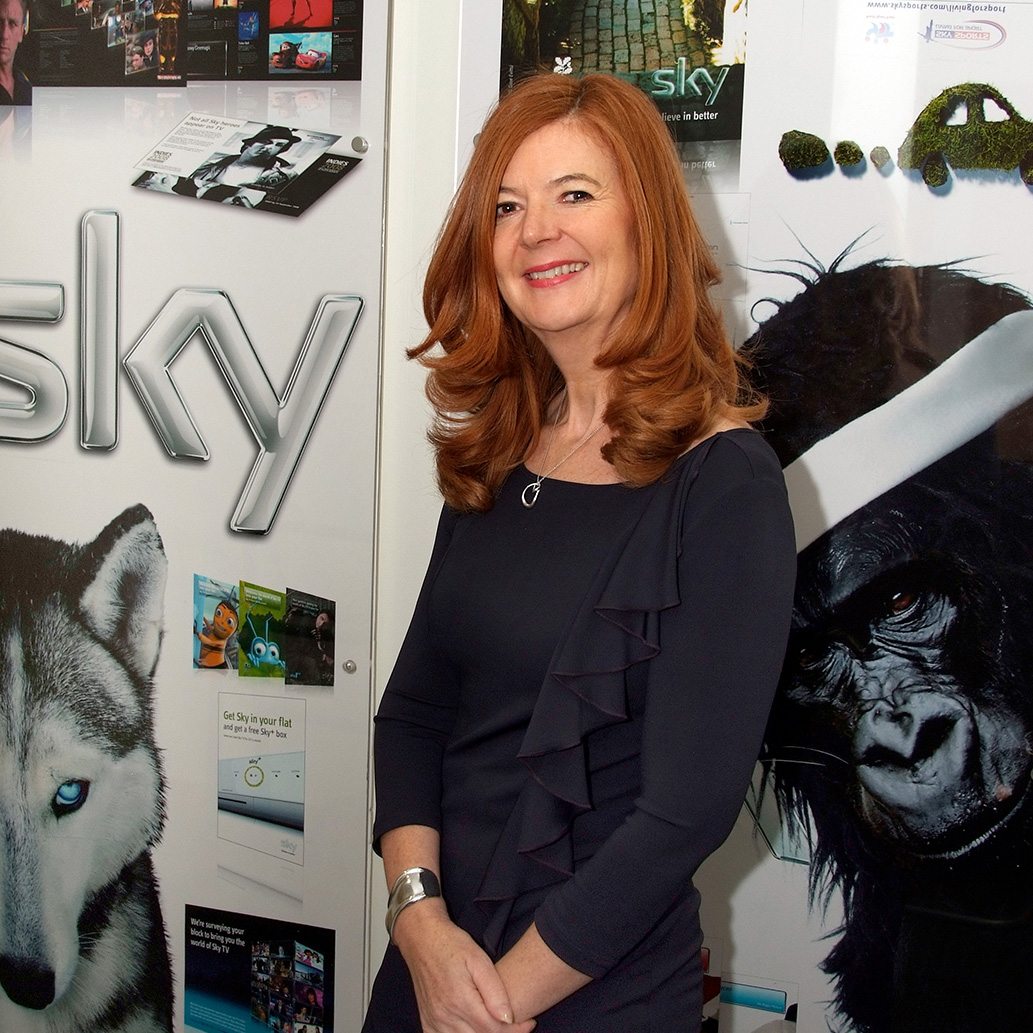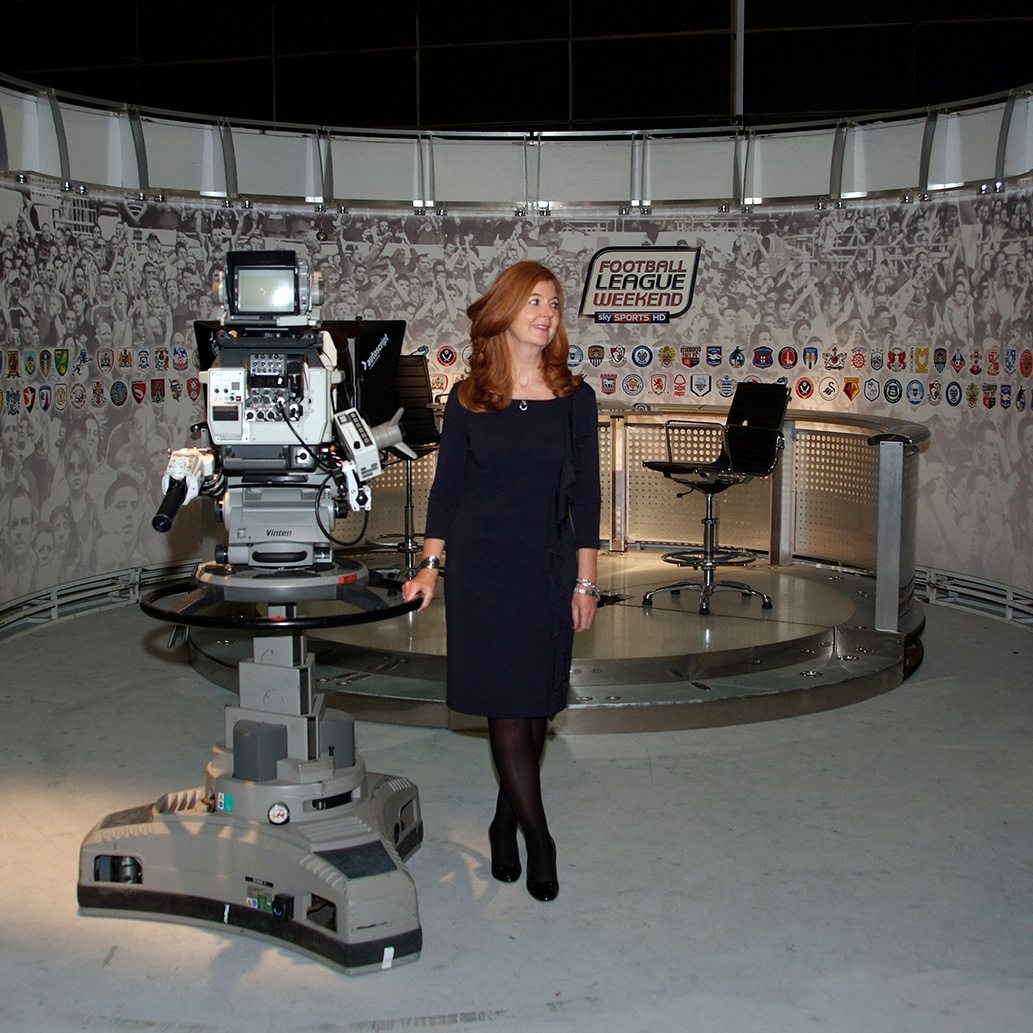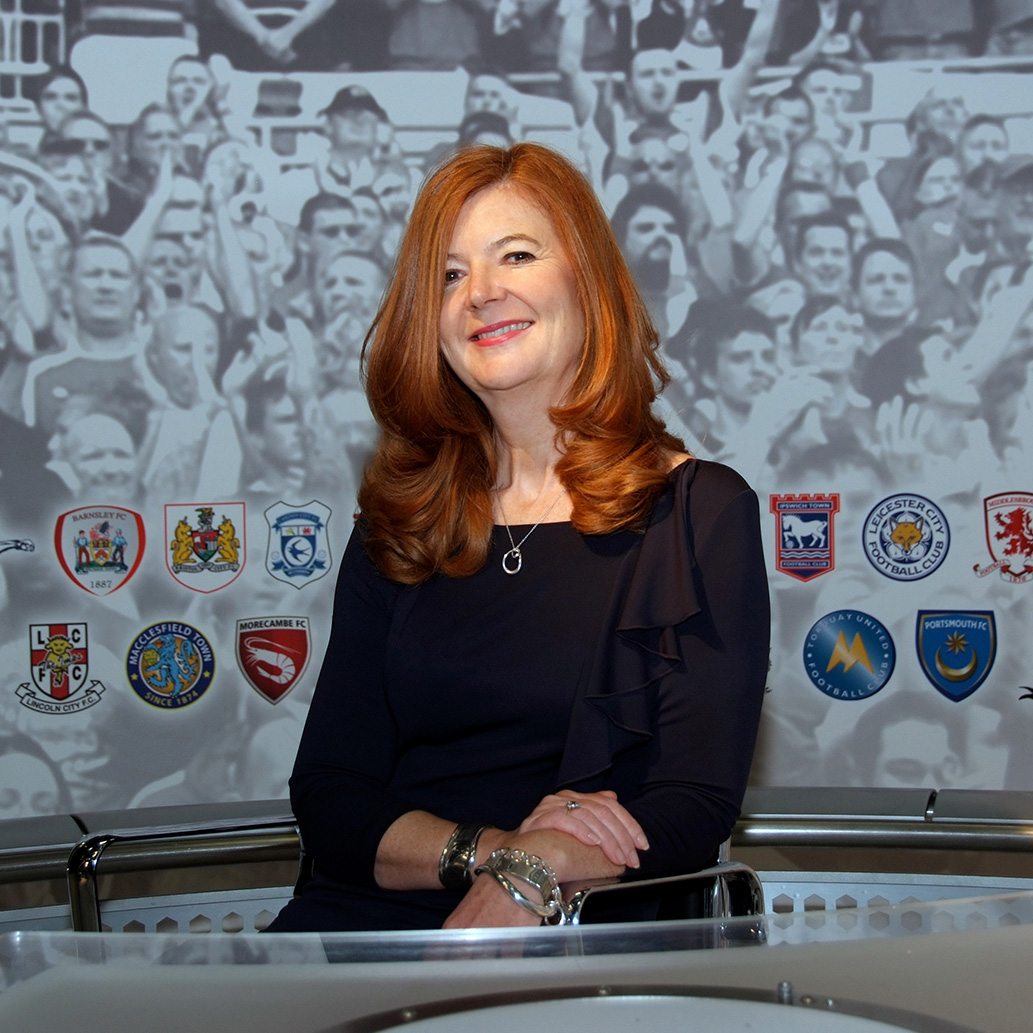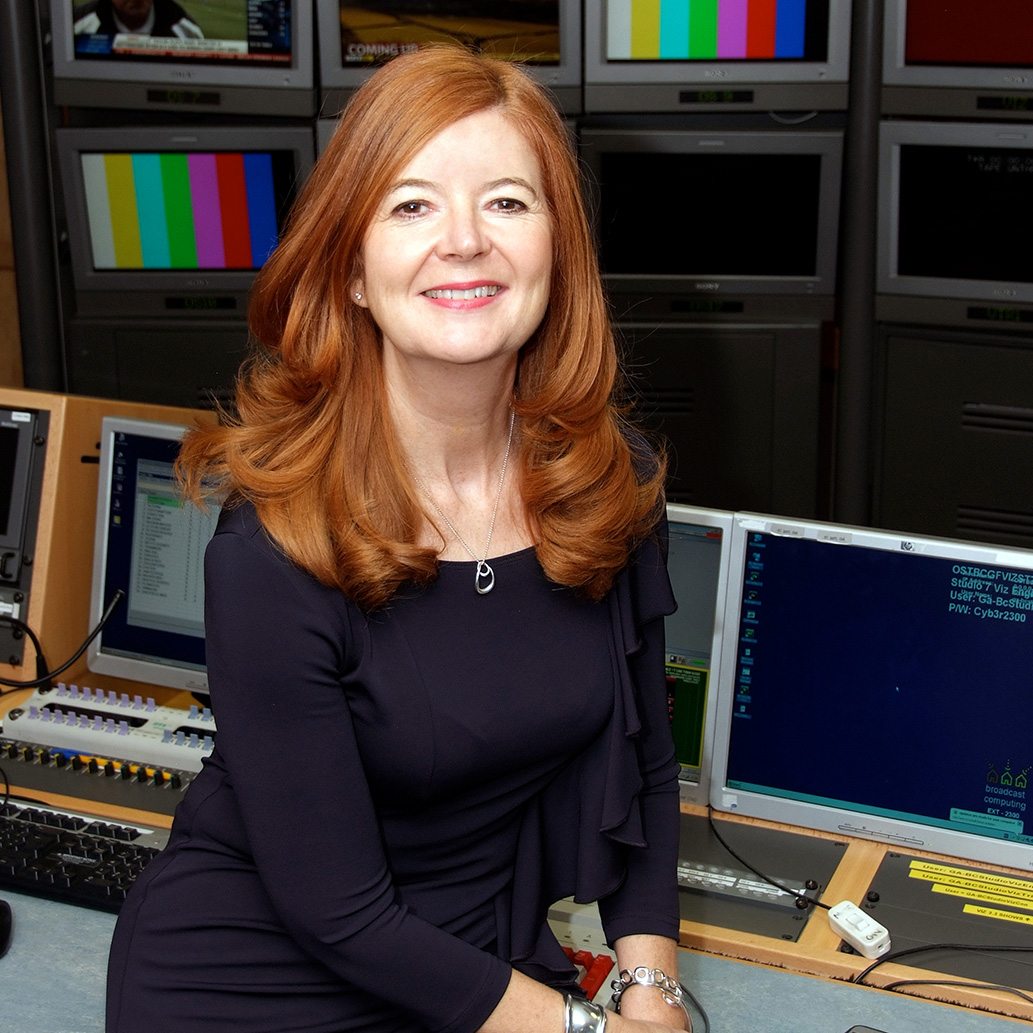Deborah, what was it about HR that made you decide on a career in the sector?
Well like a lot of graduates I was looking at a number of companies and I had two avenues I was pursuing, one was sales and marketing, another was personnel – HR wasn’t a common term then. Having visited Ford’s site in Dagenham, I thought it would be a challenging place to work, so I joined them. My first role was based in Dagenham, it was a great place to learn all about people management, I stayed there for about five years doing labour relations, and staff personnel. I then moved to Schlumberger another blue chip company, a very large oil company, known for its good people practices.
I had an HR operational position reporting in to a general manager rather than another HR practitioner, which gave me the opportunity to be more autonomous. Early on in your career I think its important to learn the tools of your trade from companies that are known for ‘good practice’. However I did think at the time I did not know enough about management development and so when I got a call from Grand Met to join their corporate management development function, I jumped at the chance.
I learnt a lot from people who were really good and that helped me think about how to get the best out of people. After Grand Met I got interested in, and involved in, high street retailing. It was very different – I really enjoyed it. I look back on my career, in three chunks, learning the tools of the trade in blue chips; then getting involved in companies in more of a turnaround situation and then working with aspirational brands.

Was Ford, the motor factoring sector a different proposition, unions, workforce disputes?
Well, it was completely different then to what it is now, for example there were 27,000 employees based in Dagenham and a lot of the work I was doing was managing relationships with union and employee relations. When I was there it was quite a structured and hierarchical organisation. At the time I was a graduate trainee they tended to throw you in at the deep end, i.e. give you a job and it was sink or swim.

You went to Ratners, after "Sandwichgate"', that was a very brave move and presumably a big HR challenge?
I got a call from a head hunter and found myself working for what was Ratners, but is now the Signet Group, and really loved it. There was a lot of work to be done. It was a bit like starting over from scratch. The group had over a thousand stores in the UK and another thousand in the US. Under the UK umbrella there were four different brands. Of course the brand itself needed re-energising and changing which we set about doing very quickly. The Ratner stores were either closed or changed to fit under the other brands, then we had to harmonise terms and conditions as each of the businesses were operating very differently. I guess the other significant challenge we had was re¥ motivating the staff and improving morale which was critical to its future… I remember, there were lots of road shows!

Following Signet Group you were involved with other turnarounds, Laura Ashley and Booker and then went onto Burberry...
Yes, I got a bit of a taste for turnarounds. Laura Ashley was a challenge if only for the fact that in the three and a bit years I was there I reported to four different Chief Executives. That was a quick lesson in learning that it helps to have some consistency in leadership and strategy. I enjoyed my time there but I do remember it was a very rocky ride for the business. I enjoyed being part of the team at Booker too. The plan there being to reshape the company which involved the disposal of some of its international businesses and then focus on the core, the cash and carry business, to improve its performance.
Just before I joined sky, I was at Burberry. That was fascinating, because I joined before it was floated, to seeing it as the successful international brand it is today, working with two great chief executives along the way. At the time I joined it was a much smaller and rather old fashioned company, generally known for its sturdy raincoats ¥ the brand had pretty much stagnated. When I started working for Rose Marie Bravo, who was the CEO at the time, she had a very clear vision about where she wanted the brand to be and that is what got me excited. She wanted to make Burberry into a must- have global brand, I could see that there was so much potential but there was also a huge amount of work needed to get there. A lot of rebuilding and rebranding, major change programme involving bringing in new skills and talent and different structures to support the ambitious growth plans. People still remember that first iconic ad with Kate Moss in a trenchcoat which sort of marked the beginning of its major transition to global must have brand.
So tell us about the call from Sky, and why a career in the media sector appealed?
It’s a different sector for me, but learning about a new area is great fun. I had been with Burberry for seven and a half years so the challenge of a new sector really appealed. I came for an interview with James Murdoch and Jeremy Darroch and got completely won over by their vision of what they wanted to do with the business. There’s huge variety in Sky, it’s not just TV, there’s a big telephony business and we’re now the fastest growing broadband provider in the UK.
The company was already doing very well when I joined but what struck me was the opportunity to grow even more at Sky, that’s what really sold it to me, and the fact that both James and Jeremy really understand that people are key to our success and for HR that’s fantastic. I know a lot of people claim that but they really mean it. That was over three years ago now, I spent the first year getting my head around the business, its jargon and technology, which I’m still learning about every day, by the way. I wanted to get a clear picture about the business strategy first, its aims and goals.
What did you do when you joined?
If I think about what my priorities were one of them was to ensure we have a back office function, what I call the engine room, that runs flawlessly. One of the things I changed was to combine the responsibilities of talent development, along with recruitment. That’s because I’m a strong believer in looking at internal talent and utilising in¥house skills before looking outside to recruit. I know this is not a typical structure, but you do get a better flow of information regarding talent across the two specialist areas, this helps enormously when you are looking to fill roles and also offers better career development for people. I also looked at our HR business partners and I can see how we have strengthened our skills in this area too. We have created an overall People Plan for the company, and also specific people plans to address each business area.
If you were to do a whiteboard diagram of what Sky is, what would it look like?
It would be a very busy whiteboard! We have a huge variety of people and functions, about 16,500 direct employees and a large number of contractors who range from short to long term assignments, to presenters and technicians. Around 6,000 of our permanent staff are based in our in¥house contact centres. These people deal with all sorts of customer enquiries from arranging Sky installations to billing to technical questions on broadband so they really are multi¥skilled roles. The majority of these people are based in Scotland where we have three big sites. Over the last year weÕve also opened some smaller regional centres in Leeds and Stockport and this January announced our plans for another in Sheffield. Our next big population is our group of field engineers who are based all over the UK installing Sky in our customersÕ homes, they are about 2,500. We then have a smaller group of around a thousand people who are our sales force who work in shopping centres and on face to face calls. There is also a big group of people who are dedicated to technology and innovation, so everything from running our system to developing the next big thing. On top of this there are the elements people will be more familiar with, the functional areas that support our business and, of course, our very important News and Sports and the TV content side of our business.
At the core of our business are our customers and our unrelenting focus on giving them the best content and service and innovation. Part of Jeremy’s strategy for the company also includes a commitment to building long¥term value to the company. Drivers to this -investing in infrastructure – we’re building a great new state of the art broadcasting facility, so that’s where all the sports programming will be based and it’s going to transform our in-house production abilities and change some of the ways we work by going tapeless.
Rather than having an overall plan, did you have to individualise it?
My team and I have an overarching plan but as this filters down, we make sure the HR function for each area of the business aligns with their individual area goals. Overall itÕs about getting the right people, getting them to do the right things and planning for the future. If I think about attracting the best people in to illustrate letÕs take three differing populations within the business; graduates, leaders and customer service advisors, when I came in one of the areas that I saw where we could be doing more was college leavers /uni graduates. We should be at the fore front of all young people’s minds, and at the time we weren’t even in one of the The Times Top 100 places for graduates to work, which was surprising as we offer some fantastic opportunities across the business, so that was one area where we worked really hard, and now we’re in the top 50.
In terms of delivering the vision, and putting Sky in the place where the board wants it, where are you on that journey?
Definitely on the right track, but we’re never complacent. As I’ve said the business recognises that people are key to its long term success, so continuous investment in our people at all levels is very important. My priorities are to develop leadership skills throughout the company at all levels of leadership; encourage collaboration and promote cross functional working; ensure we are rewarding and incentivising our people fairly and offering great benefits across the business; making certain the right tools are in place for everyone to take charge of their own development and career progression. Finally, thinking about the future, preparing now to make sure we have the right capabilities and skills in place to support growth and sustainability for the long term.
Business improvement wise our scope in making the business work better, is broad, we have a strap line on our ads – “Believe in Better” – and we try to embed a culture of believing in better within the company, so even when you’ve just finished something, we’re already thinking of how we can make it better. It’s an ethos of always encouraging people to make changes however big or small to improve performance, to make us a better company. As for service delivery and simplification, it is important that we keep a focus on delivering good, consistent service. HR itself? We are also looking at our own function and making sure we invest time on developing our own skills, often HR is so busy looking after other functions we forget ourselves. We are focussing on writing our own career map and providing training on specific topics.
In consideration of the many and varied skills and disciplines in the business, give us an idea of what training development means to Sky?
We have really different populations, but one of the things we’re keen on is for everyone to have regular conversations about their jobs with their line manager. We’ve done quite a bit of work on that over the past few years streamlining the process for employee appraisals down from 21 systems to one method. We’ve also launched a single online self service talent development system for employees called the Development Studio to give people the tools to take charge themselves. You can log on to the studio 24/7 for online access to a wide range of learning resources including training courses, a library of books, downloads and DVDs. There is also a section for us to get feedback, so if someone goes on a course, they tell us how good it is or what they think could be better. We have lots of courses we’ve developed ourselves internally, some of which have got external accreditations like The Chartered Management Institute or CIMA.
Does the self service assist with that?
I am amazed with how many hits we had, over two million hits in just two years, over 32,000 e-courses have been loaded and around 80,000 face to face courses have been booked through it, so yes it took me by surprise, just how successful it could be. We are always looking at how we can refine it, and weÕre updating it all the time, but it works very well.
Give us an idea of what your HR structure looks like?
I’ve got a small team that looks after rewards, benefits and pensions, I have another team focused on all our contact centre activity – its development and growth, a business partner function , an occupational health and wellbeing team, a team looking at talent development and recruitment and another keeping watch on health and safety and business continuity.
As I’ve mentioned, I’ve put recruitment and management development together, so that when we have job opportunities, the internal development people are working alongside the internal recruiters so we get the best fit and don’t necessarily rush off and appoint someone externally straight away. I didn’t want a disconnect between people developing talent and those recruiting it.
How do you track moves within the company?
About every six weeks I get together with some of the senior exec and the chief exec and we look at the organisation and our top talent and talk about who needs to move, who has the potential to move up or across and we’re getting better at it all the time. It can be difficult to keep track but I think if you do it regularly, you can make sure you implement what you said you would do. One thing about Sky, which I think is great, is it’s very happy to think outside the box, giving people different opportunities.
Planning leadership must be a constant concern in such a fast moving business?
We nurture talent to find the right people to lead the company in the future, for example, quite a few of our original grad trainees have gone on to senior positions within Sky. To plan leadership you have to know what sort of leadership behaviours you want your leaders to have which we use to help us make decisions about the internal appointments. One of the other key areas I have been looking at, particularly for future leadership development, is mentoring and coaching. We first trialled this with our senior women’s development network and now we’re rolling it out wider across the organisation. It’s important to have good leaders at every level whether it’s a fast or slow moving business.
What are the next key objectives for the business and what is expected from HR to achieve this?
I just had my own top team together and, of course, we have our people plan covering the next 12 months, but we’re really concentrating, making sure that whatever happens in five years time we’re ready. We need to ensure we have the right people in place with the right skills and capability to sustain success for the long term.
Are you still as much of a people person as when you got into HR?
Absolutely, I love the People function, I can’t imagine getting bored with it – everyone is different and I enjoy working on the huge variety of issues that are constantly thrown up by a diverse workforce.
HR has changed so much, and along the way it has accrued so much responsibility, do you think that's been a good thing for HR?
Yes, I think it is. I suppose if anything I think HR is more important than I ever thought it was at the start of my career. I think the function has developed alongside the needs of the business and the growing expectations of the workforce. The function used to have a reputation, I think very early on, for being an admin function and where you went for tea and sympathy. That has dramatically changed. It’s been very interesting to see the growth of specialisms such as remuneration, leadership development and learning, mergers and acquisitions. I think specialisms add a lot of weight to the function overall, however I still place a high importance on the more traditional aspects of HR. The back office and admin function has to be world class as this touches all employees. I think that the people agenda does not just belong to HR, everyone in business has a people responsibility. I don’t think people management is exclusively HR’s responsibility.
In your experience, how has the downturn changed HR perspectives?
I think much depends on the state of the business you are sitting in but there are things I imagine that are common to all functions. A few things spring to mind, keeping your best talent is always key whether in a downturn or not making sure your remuneration practices are fair and rewarding the right things¥ if money is scarce these things take on an even greater weight. If you are coping with reduced budgets then making sure training and development is not swept by the wayside.
What's changed in HR over the course of your career?
What I have noticed change during my time in HR is how candidates and employees expectations of company’s has changed. Nowadays people expect a lot from the company they join. They want to know what an employer can do for them, how you will train and develop them, how the Company supports the community, does it support particular charities, is it a ‘green’ Company? All of these issues are very important.
There's a great deal of change happening, do you think HR is up to the task of keeping pace with it all?
Yes, but its not a choice, you have to apply a dose of common sense asking what will make the business successful and keeping focus on that and not get sidelined by other stuff. Over recent years there has been a myriad of legislation, which may be well intentioned but leads to a whole lot of red tape. I think it’s particularly hard for smaller employers that don’t necessarily have the infrastructure for these changes. I think it’s very important that where there is an opportunity to influence employee bills along the way, you should.
Where do you see HR in the future?
Not sure I see anything radically different, I think it will I think that the people agenda does not just belong to HR, everyone in business has a people responsibility. I don’t think people management is exclusively HR’s responsibility continue to be challenging especially around increased matrix working and different models of working, but essentially human nature is human nature, and the priorities of retaining and motivating people will always be there even if the solutions to this are different.
Are you fairly pragmatic about that?
Absolutely, one of the things which interested me with Sky is their openness to new ideas, we will pilot new and different ways of working and most will work, and if it doesn’t you have to try something different. If you don’t try anything new, you won’t get any better.












